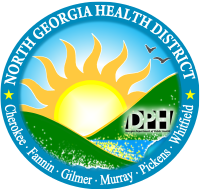- Details
- Written by: Jennifer King, District PIO
- Category: Media Releases
3 in 10 Girls in the US get pregnant at least once before age 20. - STAYteen.org
Join us for a Watch Party May 4, 2011!
Teens, Pre-Teens, and Parents: view MTV's '16 and Pregnant'
Time: 4:30pm - 5:30pm
Location: Dalton Parks & Recreation Center
Presented by North Georgia Health District Teen Health Program
For more information view the flyer or call 706-281-2327
Join us for a Watch Party May 4, 2011!
Teens, Pre-Teens, and Parents: view MTV's '16 and Pregnant'
Time: 4:30pm - 5:30pm
Location: Dalton Parks & Recreation Center
Presented by North Georgia Health District Teen Health Program
For more information view the flyer or call 706-281-2327
- Hits: 6118
- Details
- Written by: Sarah Jones, RN
- Category: Gilmer County Health Department
 The Gilmer County Health Department would like to help you complete your required post secondary school health forms. Most colleges, foreign study programs, technical schools, military and employers require that these forms be submitted before you can attend or register for classes.
The Gilmer County Health Department would like to help you complete your required post secondary school health forms. Most colleges, foreign study programs, technical schools, military and employers require that these forms be submitted before you can attend or register for classes. The health department will be at Gilmer High School on April 19th from 3:30 p.m. to 6:30 p.m. to update student immunization/health records and administer required or recommended immunizations. Some organizations will require or recommend additional immunizations that are not required for school attendance.
If you are a student under the age of 19, you can receive your vaccinations at a cost of $14.75 each. If you are under the age of 18, a parent must sign a permission slip for you to receive you immunizations. Parents are welcome but it is not necessary to be in attendance as long as the student has a signed permission slip.
Permission slips and vaccine information will be distributed to students. You may also obtain these documents below.
Of course if you are unable to attend on April 19th, you may visit the Gilmer County Health Department during working hours Monday through Friday. No appointment is necessary.
If you have any questions, please feel free to call Sarah Jones, RN at 706-635-4363.
Permission Slips and Vaccine Information:
 Permission Slip 33.97 Kb
Permission Slip 33.97 Kb  Dtap 58.23 Kb
Dtap 58.23 Kb HPV 64.07 Kb
HPV 64.07 Kb Hepatitis A 67.67 Kb
Hepatitis A 67.67 Kb Hepatitis B 65.34 Kb
Hepatitis B 65.34 Kb Meningitis 67.67 Kb
Meningitis 67.67 Kb
- Hits: 339


